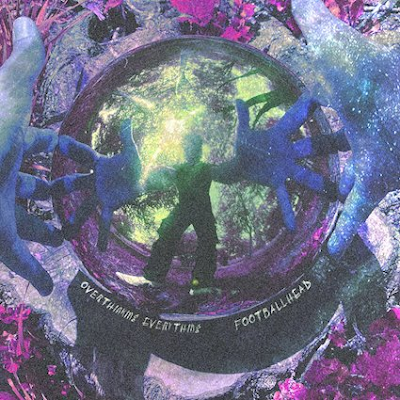Thursday 29 February 2024
Footballhead - Overthinking Everything
Monday 26 February 2024
Memory - Film Review
At the start of the film, we first encounter Sylvia (Jessica Chastain) at an AA meeting. She is a recovering alcoholic of 13 years and she has brought her daughter to the meeting for the first time, at the meeting Sylvia is being served platitudes from other people recovering from crippling addiction.
Shortly after, she attends a high school reunion with her sister, Olivia (Merritt Weaver). Feeling uncomfortable and wanting to go home, she heads for the elevated train where she is followed by Saul (Peter Sarsgaard) who then spends the night outside her home. The next morning Sylvia phones her support sponsor to pick him up.
A few days later they make contact and Saul does not remember following Sylvia home due to his short term memory problems relating to addiction. Saul requires day to day care while his brother and family work, Sylvia is a nurse at an adult day care facility and is asked by Saul's family to look after him.
From there, a kinship between the two and the comfort they feel in each other's company blossoms into an intimate relationship as time passes. Sylvia has long felt unsafe around men, this is due to being abused by her father from a young age, she resents her mother for supporting the father's behaviour and this led to Sylvia's alcoholic dependency.
Therein, lies part of the problem with the film, while it has two stellar lead performances from an outstanding Sarsgaard and always excellent Chastain who elicits the right level of vulnerability; the film does not hold your attention in terms of its low-key production design and overall bleak cinematography.
Case in point the big scene where Sylvia’s mum - the frightening Jessica Harper - and family confront her in Olivia’s home, the scene is blocked quite awkwardly with Mum’s back to the camera, like a confrontation in a theatre production it feels like the scene was shot hastily and without much care or perhaps the fractured haphazard approach is reflective of the breaking of memory amongst the lead characters.
The milieu and mise-en-scene displayed is very middle of the road and grey from the costumes of the characters, to the non-descript homes they live in, this is a New York set film but apart from key points like the elevated train this could be set in any American city which is part of the film's intention.
There are big points being raised in the film, ideas about addiction and how it grips the person and their families, the way the people who experience sexual assault and/or abuse are victimised further by people not believing their story to the warm solace hurt people find in each other.
The film has a slow cinema feel where an explosion of action or sound - in this case a hum of Procol Harem's 'A Whiter Shade of Pale' for the second or third time - jolts the viewer back to regain their attention. This is partly down to the performances of the other actors who are merely peripherals on the edges of the main leads, and the slow build of deep underlying emotion that never comes to the surface. Instead, our leads part and then are brought back together by the film's conclusion for an embrace that ends with that song again.
All in all, this is a film that has big intentions but is subdued in the execution and overall conclusion leaves the viewer wanting more than what was given despite the brilliant dual lead performances.

